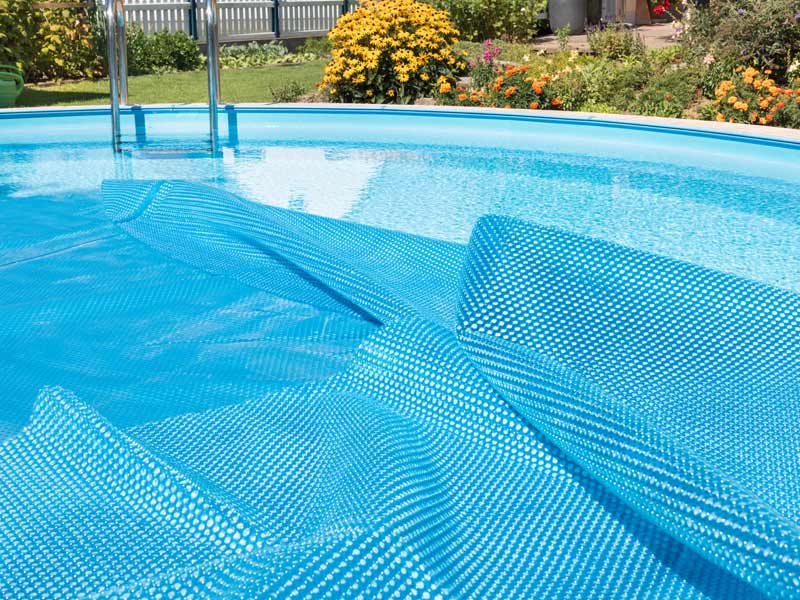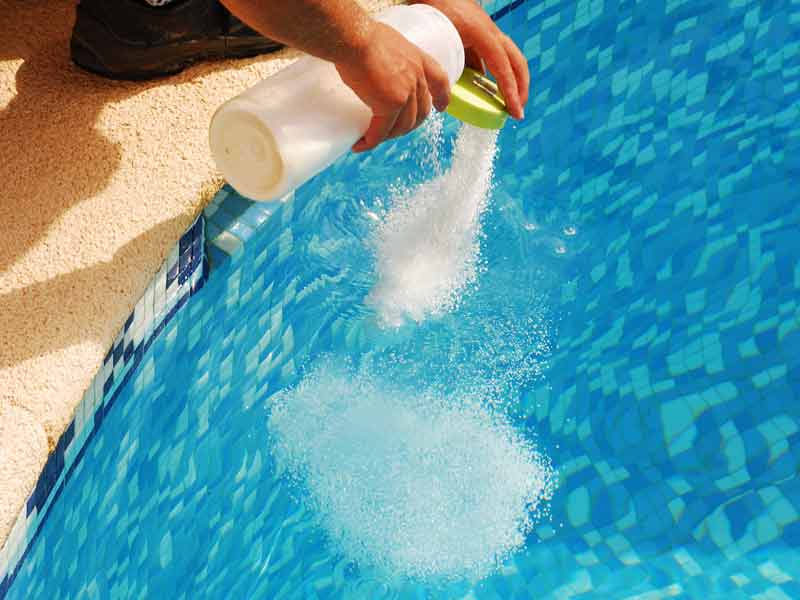15 Jun A Pool Blanket Can Save Pool Water from Evaporation
The benefits from using a pool blanket is huge! South Africa’s National Spa & Pool Institute explains how much swimming pool water can be lost through maintenance and evaporation. Does the amount of water lost make it difficult to justify a pool? Yes, definitely. How can you avoid losing so much water? Recycling pool water with a poolside tank is one possible answer, and below are some additional tips:

The average home with a swimming pool uses more than double the amount of water outdoors than a South African home with no swimming pool. There are a lot of homes with swimming pools in the backyard and they use tons of water. Here is some advice on how to minimise the use of water in pools located in arid zones.
The climate in South Africa, specifically its long summers and high temperatures, are what make having a swimming pool so appealing. But, these are the same conditions that lead to excessive water evaporation.
Because water is relatively inexpensive, households with swimming pools fill them up without much thought about water useage and loss. The problem is that South Africa suffers drought conditions and there are severe restrictions involving pool use. Homeowners with swimming pools must act responsibly to avoid wasting water.
What causes water to evaporate?
Evaporation occurs when a liquid turns into steam (a gas) as the temperature rises. We see this with water boiling on the stove and steam rising from the pan. The liquid just dissipates into the atmosphere.
During the summer months there is an increase in evaporation rates due to the higher temperatures and the water level in swimming pools will quickly drop. In just one day of harsh sun, as much as 300 litres of water can evaporate from a swimming pool. This comes to 30 buckets, which means that over the course of a year nearly all the water in the pool will evaporate unless it is continuously filled to the top (topped up).
Weather conditions, like wind, nighttime air temperatures, humidity and a rise in the water temperature in the pool, all determine how fast pool water evaporates. Another factor is how big the pool is: larger pool = more lost water. The specific area also affects how fast the water evaporates. Under normal conditions the rate of evaporation is 35mm to 45mm a week during summer, according to Dr. Jeremy Gibberd CSIR. Under abnormal conditions, the loss of water dramatically increases. Abnormal conditions under which water evaporates a lot more quickly are:
- When the pool is heated
- If there are water features
- Pool is located in open areas that are windy
- Rim flow pools
Topping Up The Water in Your Pool
Most people have no idea how much water actually flows from their backyard hose in a minute. The answer to that is an average of 17 litres. Filling your pool to the top everyday during the summer can end up totaling quite a bit of water if it takes 30 minutes to do the job each time: 17 litres x 30 min. x 30 days = 15,300 litres per month.
If you add to this the water being lost to evaporation, which would be about 9,000 litres per month, the amount of water your pool is using could be as much as 24,000 litres a month.
How To Avoid Pool Water Loss
- Check for Unseen Leaks
The first thing you want to check would be for leaks. If the water loss from your pool seems excessive it could be due to unseen leakage. One sign that you may have unseen leeks could be a need for more chemicals. If this is the case, have a professional come out to check for leaks. - Use a Pool Blanket
Covering your pool with a pool cover, “liquid” pool cover or pool blanket will insulate the water from heat and wind evaporation. Your pool should be covered during the winter and whenever it is not in use. This will help avoid water loss throughout the year and lower your maintenance costs. A pool cover can reduce water evaporation by 90% to 95%. Liquid pool covers and pool blankets are not quite as effective but will still lower the evaporation rate by 40% or more, which is substantial.

Additional benefits of using a pool cover, liquid pool cover or pool blanket when the pool is not being used are:
- Prevents dirt and debris from getting onto the surface of the pool, enabling it to be cleaned more quickly
- Fewer chemicals are needed to keep it clean

Avoid Excessive Backwashing
A swimming pool must be regularly maintained to keep the water safe for swimmers, but there are certain ways of minimising the amount of water used for cleaning the filters.
Sand filters are commonly used and these usually require backwashing every couple of weeks. You should only backwash the filters until the glass becomes clear. If you continue backwashing for any longer you are wasting water.
Other types of filters can be cleaned by hand. Cartridge filters are rinsed out and if needed, soaked in a special solution. These filters only need to be replaced every two or three years.
Keep in Mind
- The majority of water clarity problems can be prevented and cured with the proper balance of chemicals in your pool.
- Pools usually do not need to be drained and refilled any more often than every 10 years.
Rules for Keeping The Most Water in Your Pool
- No excessive splashing or bombing
- Stand on the top step to drip dry so the water returns into the pool
- Ask swimmers to top the pool up using a bucket so they realise how much water is being used
- Waterfalls and fountains increase evaporation, so have them running only when you are entertaining
- Do not overfill your pool: water level should be half way up to the opening of the skimmer box for the filter to work properly
- Consider lowering the pool’s water level to lower the water loss from splashing
- Place windbreaks around your pool, which could even be hedges, to reduce winds because wind increases the rate of evaporation
- Keep your pool covered when not in use, either with a pool cover, liquid pool cover or a pool blanket

No Comments